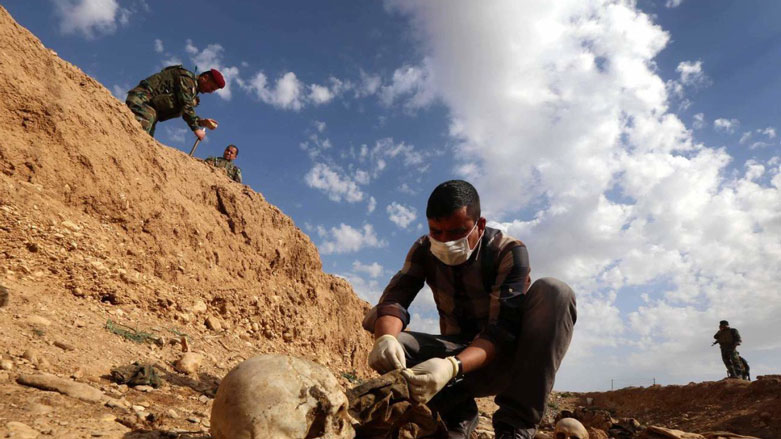Iraq to begin DNA tests to identify remains of Yezidi victims in mass graves

ERBIL (Kurdistan 24) – The Iraqi government will begin tests to identify the identities of the remains of over 140 bodies discovered in mass graves in the country’s north, believed to belong to Yezidi (Ezidi) victims.
According to Zaid al-Yousef, the head of Iraq’s forensics administration, the office will start DNA tests on the remains of 141 bodies which were located in the Sinjar (Shingal) region.
Yousef told The Associated Press that the testing would take until August.
The Ezidi religious minority suffered heavily at the hands of the so-called Islamic State following its emergence in Iraq in 2014, including mass executions. The occupation of the town of Shingal led to the displacement of hundreds of thousands of Ezidis.
Militants subjected women and girls to sexual slavery, kidnapped children, forced religious conversions, executed scores of men, and abused, sold, and trafficked women across areas they controlled in Iraq and Syria.
So far, dozens of Ezidi mass graves have been found in the country, 16 of which were discovered in the small village of Kojo in Shingal.
Last month, the United Nations Investigative Team for the Accountability of Islamic State crimes (UNITAD) announced it had completed the unearthing of 12 of those graves in coordination with “local community and survivor advocate groups.”
Related Article: UN details progress in evidence-gathering of ISIS crimes against Yezidis
UNITAD is supporting national efforts to hold members of the terrorist group responsible for their crimes by gathering evidence of war crimes, crimes against humanity, and possible genocide in Iraq.
The committee said it had begun to identify “channels for the effective use of gathered evidence,” which includes “consultations with several states with respect to the use of evidence collected in ongoing domestic proceedings related to the crimes of ISIS.”
